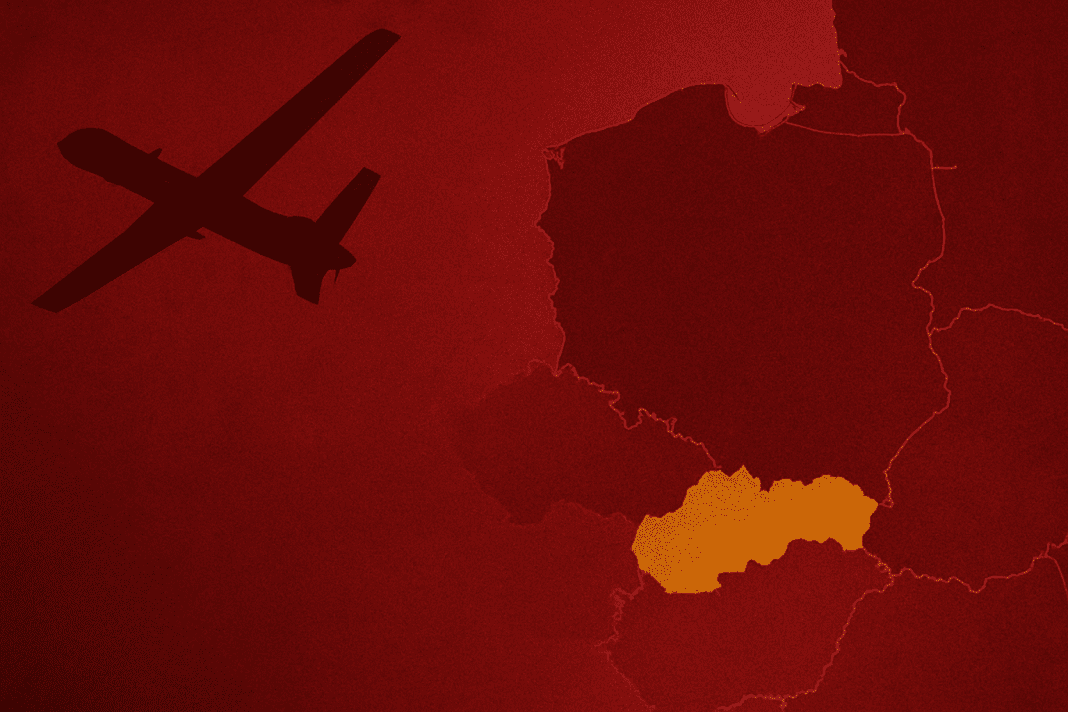A tense security incident unfolded on the evening of September 13, 2025, when a Russian Shahed drone breached Romanian airspace and remained there for almost 50 minutes before returning to Ukrainian territory. The episode has sparked renewed concerns across Europe about the risk of Russia’s war in Ukraine spilling over into NATO territory.
Detected by Romanian F-16s and Tracked for 50 Minutes
Romania’s Ministry of Defense confirmed that the unmanned aerial vehicle entered its airspace at approximately 18:23 local time. Air defense radars quickly detected the aircraft, and two F-16 fighter jets from the Romanian Air Force’s 86th Air Base were scrambled to monitor the situation. The jets shadowed the drone as it flew at low altitude over an unpopulated stretch of territory near the Danube River.
The drone was tracked traveling about 20 kilometers southwest of Chilia Veche, close to the Danube Delta. According to Romanian officials, it eventually turned back east and reentered Ukrainian airspace without striking any targets or causing damage inside Romania. The Ministry emphasized that the drone never passed over populated areas and posed no immediate danger to civilians during its flight.
At the time of the incursion, two allied German Eurofighter jets were also airborne in Romanian skies as part of NATO’s regular air policing mission. They were placed on alert but did not engage the drone.
Defense Minister Ionuț Moșteanu later appeared on Antena 3 CNN to explain the response. He confirmed that the F-16 pilots were prepared to shoot down the drone if it had threatened Romanian territory or civilians. “The drone was flying very low. At one point, it headed back toward Ukraine. According to the information we have, it left Romanian airspace and returned to Ukraine,” Moșteanu stated. He noted that similar incursions occur almost every week in the region bordering southern Ukraine, especially near Izmail, Vilkovo, and northern Dobruja.
Russian drones threaten Poland but Dutch F-35 jets lead joint strike to neutralize danger
Romania Calls Russia’s Action Reckless, Coordinates with Allies
The violation of Romania’s airspace prompted a swift political response in Bucharest. Foreign Minister Oana-Silvia Țoiu publicly condemned the incident, describing it as “unacceptable and reckless.” Writing on X, she reassured the public that “the population of Romania was never in danger,” while stressing that “such actions by Russia are unacceptable and reckless. Romania condemns this behavior and takes the necessary measures to protect its sovereignty and security.”
Țoiu emphasized that Romania was already coordinating closely with its partners in both the European Union and NATO. She urged the EU to move quickly on approving its 19th package of sanctions against Russia, suggesting that further punitive measures were essential to curb Russian aggression. She also pledged to raise the airspace violation at the upcoming United Nations General Assembly, pressing for stricter global enforcement of sanctions targeting Moscow.
Her comments reflect growing frustration in Eastern Europe over repeated Russian provocations near NATO borders. Romania, which shares a long border with Ukraine along the Danube Delta, has faced occasional drone fragments landing on its territory since the early months of Russia’s full-scale invasion, though a direct and prolonged drone flight deep into its airspace is rare.
Billions Spent, Little Gained: Romania’s Defense Deals Called ‘One-Sided’ by Experts
International Outrage and Rising NATO Concerns
The incursion also drew a strong response from Ukraine and other NATO allies. Ukrainian President Volodymyr Zelenskyy stated that the drone penetrated roughly 10 kilometers into Romanian territory and remained inside NATO-controlled airspace for nearly an hour. “This is not an accident or a mistake. It is a deliberate expansion of the war by Russia,” Zelenskyy wrote on Telegram, framing the event as part of Moscow’s broader strategy to intimidate Ukraine’s Western supporters.
Czech Foreign Minister Jan Lipavský echoed those concerns. In a post on X, he remarked, “Russia continues to provoke. Yesterday evening it was Romania. I do not believe in Russia’s ‘mistakes.’ As NATO allies, we remain vigilant.” Lipavský added that Russia “must pay a price for its provocations against NATO.”
The drone’s incursion came just days after another alarming episode involving Russian drones near NATO borders. On September 10, Poland reported that 19 Russian drones had crossed into its airspace, prompting air defenses to shoot down several of them. Some of the drones caused property damage in Poland’s Lublin Voivodeship. The situation grew tense enough that authorities temporarily closed Lublin Airport on September 13 due to further drone threats.
Growing Risk of Spillover
The latest incident underscores the growing risk of Russia’s war spilling beyond Ukraine and testing NATO’s commitment to defending its members. While NATO’s Article 5 collective defense clause is only triggered if a member is deliberately attacked, repeated airspace violations could increase the risk of miscalculation or accidental escalation.
Romania has repeatedly stated that it will defend its airspace while seeking to avoid direct confrontation. However, each new incursion forces NATO to weigh how far it is willing to go to deter Russian aggression while preventing the conflict from spreading. As the war grinds on, the skies above Eastern Europe are becoming increasingly tense—and incidents like this serve as stark reminders of just how fragile the security situation has become.
